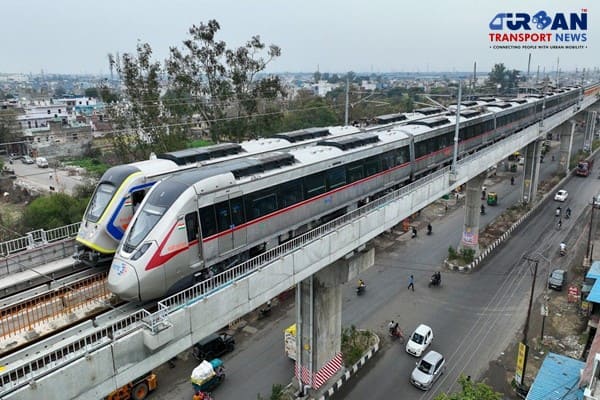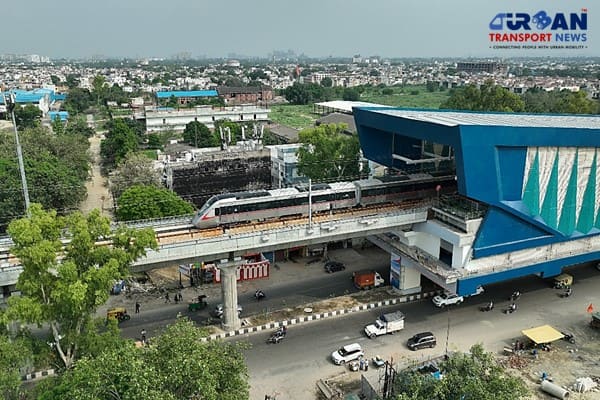 North-South Commuter Railway (NSCR): Modern Train Network Connecting Luzon Island
North-South Commuter Railway (NSCR): Modern Train Network Connecting Luzon Island India launched Bharat Taxi Service as First Cooperative-Owned Digital Mobility Platform
India launched Bharat Taxi Service as First Cooperative-Owned Digital Mobility Platform India places World’s First Live Commercial Order for Hyperloop-Based Cargo Logistics
India places World’s First Live Commercial Order for Hyperloop-Based Cargo Logistics How Weigh-in-Motion Systems Are Revolutionizing Freight Safety
How Weigh-in-Motion Systems Are Revolutionizing Freight Safety Women Powering India’s Electric Mobility Revolution
Women Powering India’s Electric Mobility Revolution Rail Chamber Launched to Strengthen India’s Global Railway Leadership
Rail Chamber Launched to Strengthen India’s Global Railway Leadership Wage and Hour Enforcement Under the Massachusetts Wage Act and Connecticut Labor Standards
Wage and Hour Enforcement Under the Massachusetts Wage Act and Connecticut Labor Standards MRT‑7: Manila’s Northern Metro Lifeline on the Horizon
MRT‑7: Manila’s Northern Metro Lifeline on the Horizon Delhi unveils ambitious Urban Mobility Vision: Luxury Metro Coaches, New Tunnels and Pod Taxi
Delhi unveils ambitious Urban Mobility Vision: Luxury Metro Coaches, New Tunnels and Pod Taxi Qatar approves Saudi Rail Link Agreement, Accelerating Gulf Railway Vision 2030
Qatar approves Saudi Rail Link Agreement, Accelerating Gulf Railway Vision 2030
Supreme Court allows to construct viaduct for RRTS in Delhi's Forest Area

New Delhi, India (Urban Transport News): Construction of railway line viaduct for Delhi - Panipat RRTS corridor will be done in the statutory forest area of Millenium Park in Delhi. In a major decision, the Supreme Court of India gave the permissions to National Capital Region Transport Corporation Limited (NCRTC) to commence construction and civil activities in Delhi's Forest Area.
NCRTC is a nodal body to implement RRTS projects in Delhi-NCR. The construction work for RRTS will be done in 1 acre of the area in the Millennial Park which comes under the Forest Area of Delhi. Furthermore, this RRTS between Delhi and Panipat will reduce a minimum of 45 minutes of total time travel.
The Supreme Court of India had banned any kind of construction in Delhi's forest areas in 1996. Now, Supreme Court's Chief Justice S A Bobde has modified its 1st March 1996 order on the Centre's request. Therefore, granted permission to construct the Delhi - SNB - Alwar RRTS and Delhi - Panipat RRTS corridors of the mass rapid transit system for Delhi & NCR.
Chief Justice Bobde said, “We consider it appropriate to give the permission for the construction of Delhi-Panipat Corridor over an area of 1 acre in the Millenium Park of Delhi.”
RRTS project aims to offer services between New Delhi and Tier-2 cities in adjoining states viz. Uttar Pradesh, Haryana and Rajasthan. Additionally, it will provide a design speed of 180 km per hour and an average speed of 100 km per hour. In the first phase of RRTS, NCRTC will construct three semi-high speed rail corridors to connect Delhi to Meerut, Alwar and Panipat regions.
The first RRTS project will connect Modipuram in Meerut to Sarai Kale Khan in Delhi through constructing a rail-based rapid transit system of 82-km. Furthermore, the project involves the construction of an 82 km long rapid rail corridor with 24 stations.







